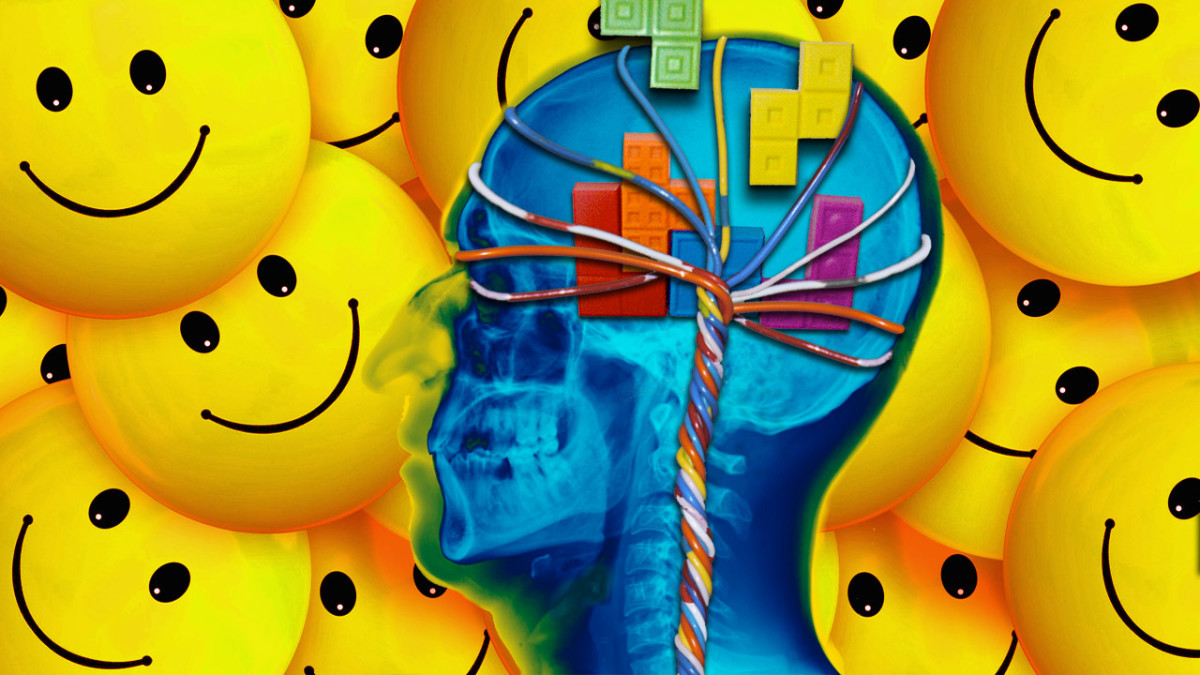Do you really need to be that happy?
Do We Really Need To Be all That Happy?
You too can be happy: All you have to do is think happy thoughts
Are you happy yet? Is the goal in life happiness? Should we all strive to be happy all the time? Is that the new goal of modern man - being giddy with glee at all times?
I have been reading articles that promote happiness for the last few years. At first I was an avid reader. If you go to http://www.marcandangel.com/2008/06/18/21-must-read-articles-on-happiness/ you can read 21 articles that help you get happy.
Then I began to think about the whole ‘get happy’ movement. What is the premise of these articles about happiness?
1. You can fake it until you make it.
2. Happiness is the ultimate life goal (therefore other emotions aren’t as productive, admirable, or sought after)
3. If you think of others, be kind, & don’t dwell on your illness/injury/negative stuff,
you will be happy.
4. If you are grateful for what you do have, you will be happy.
5. Getting exercise and eating the right foods will make you happy - to increase the endorphins and the serotonin in your body – which makes you happy. Happiness comes from the internal chemical reactions inside your body.
What about regular satisfaction?
Are we trying to rediscover the happiness we once knew, such as pleasure, contentment, satisfaction, cheerfulness, merriment, gaiety, joy, joyfulness, joviality, jollity, glee, delight, good spirits, lightheartedness, well-being, enjoyment; exuberance, exhilaration, elation, ecstasy, jubilation, rapture, bliss, blissfulness, euphoria, or delight. Do we only want the positive emotions – so, don’t let any negative thoughts enter our minds.
There are many other emotions that humans experience:
“An emotion is a very intense feeling, which often involves a physical as well as a mental response and implies outward expression or agitation” Def. from Apple MacBook Pro Dictionary, version 2.1.2,2009. Apple Inc.
Sadness Anger Jealousy
Passion Hate Loathing
Horror Fear Nostalgia
Regret Homesickness Pride
Contentment Satisfaction Love
Loneliness Overwhelmed Jubilant
Envious Surprised Jubilant
Happiness is only the tip of the iceberg of positive emotions. There are these other postive emotions: cheerful, cheery, merry joyful, jovial, jolly, jocular, gleeful, carefree, untroubled, delighted, light-hearted, pleased, content, satisfied, gratified, buoyant, radiant, sunny, blithe, thrilled, elated, exhilarated, ecstatic, euphoric, exultant, rapturous, jubilant, glad and perhaps others.
Which are the opposite of sadness: unhappy, sorrowful, dejected, depressed, miserable, despondent, despairing, disconsolate, desolate, wretched, glum, gloomy, melancholy, mournful, forlorn, crestfallen, heartbroken, blue, sorry, pitiful, regret, shame, guilt, depressed,
But we might also be feeling lonely, overwhelmed, excited, deprived, needy, wistful, oppressed, encouraged, or surprised.
What we are really reading about in these “get happy” articles is how not to be depressed, because in our modern age of git’ er’ done , we have no time to process and little time to contemplate life’s greater questions. Hence, we feel unfulfilled, and yes - depressed.
We could be upset about any myriad events in our lives - health, financial, relationship issues provide fodder for more emotions than happiness. So when asked to dump all that I’m feeling for a simple happiness, I wonder if that is the right goal.
Please allow me to feel all the feelings I have without asking me to ‘fix’ them so that I remain in a constant state of happiness. Please look at other emotions as part of wellness for the human spirit, and not a malady to be remedied.
When my mom died, just two months after my father, I was sad. I grieved the loss of both parents in such a short time. The fact that my brother had died just three months before my father compounded my grief. If you would have wanted me to be happy and to act all glad at that point in my life, I just could not. Indeed, they called it “clinical depression” because I cried a lot. Guess what? Grief makes people cry. And we need to get our tears out before we can heal. It takes time. Time to grieve. Time to cry. Time to be angry that this unjust thing happened. Yes people die all the time. And, yes I was grateful for a loving husband, a job, a roof over my head, & food on the table. But, I was also sad. Acting like a giddy school-girl, at that point, would have been a farce.
I think we get stuff done when we are angry. When I am mad that the house looks like Macy’s on the day-after a big sale, I get to work and work harder & faster than if I was just so very happy about being alive. When you have had a fight with your spouse, do you ever vacuum the house? Or do you do those dishes that have been sitting in the sink since Monday? Boy! It gets done quickly, I bet.
Being able to feel the despair, the disappointment, the lonely, the sad makes my positive emotions more real, and more intense. I want to feel the anger, feel the guilt and feel the sadness. Then I also want to really feel the satisfaction, the contentment and the joy of life. I think there is room for all the emotions and that my ‘Many Colored Days” need not be uniformly happy.
By the way, guilt is “the gift that keeps on giving” I always say. And it’s not a joke. Guilt is different from Shame. With guilt I am convicted of doing wrong, I can then feel remorse or regret for my actions. I can experience feeling contrite as I provide restitution for my wrongdoing. But, guilt is not as intense as shame. I can feel and admit to being guilty without loosing face.
Shame is more of feeling humiliation, mortification, and the discomfort of embarrassment. I have disgraced or dishonored myself, or my family. I could blame no one for showing contempt to me, because I have sullied the name of my family. I should expect to be chastened and humbly make amends for any scandal I have caused. When we experience shame, we also experience loosing of 'face' - and creating the extension of loosing face for our family.
In both these cases, the key ingredient is feeling deeply enough to want to do something to rectify the situation – make amends, sort it out and resolve the issue by repairing anything broken, correct any wrongs perpetuated, and settle any disputes. That is the ‘gift’ of guilt – it helps monitor our ethical and moral principles that govern behavior. These are the emotions that help us learn right from wrong and stick to our values.
However, if I can convince myself to be happy, as so many articles tell me to do today, I don’t really need to feel those more intense feelings of guilt (or shame), so I won’t need to repair any wrongs I might have committed.
These happiness articles tell me that “If you let go of anger, guilt and jealousy, you will be happy. Feeling jealous will only represent what you are not grateful for in your own life.
“Guilt is a useless emotion with no redeeming qualities. If you have guilt do something about it and move forward.” From this Hub page:
References:
Here are some of the articles I read:
“The How of Happiness: A Scientific Report to Getting The Life You Want” by Sonja Lyubomisrsky
How to Be Happy” by Dr. Ben-Shahar from: http://calnewport.com/blog/2008/03/21/how-to-be-happy/
Hub pages on happiness:
* Allan Douglas has “A Sure Formula Fro Happiness”
* Lisa HW tells us about “Living Happily Alone”
Because that seems to be more difficult that living happily with someone else – or a frew someones.
* dawnM tells us “How to Choose to Be Happy In Your Life with Positive Thinking”
She says that “Happiness is a choice.”
* Bail UP! Provides us some cute photos and “Happy Quotes for Unhappy Times”
Take my "Are you happy" Poll
Do you think being happy is a simple as making up our minds to be happy?
Notes & Discussion about the War on Unhappiness
The war on unhappiness: Goodbye Freud, hello positive thinking
By Gary Greenberg. Harper’s Magazine, September 2010. Pgs.27-35.
Points:
- “Chimney sweeping” –the process of remembering past experiences;
‘the enduring repressed wishes of childhood’
- “we need our chimneys swept not to clean them out but ot see what i hidden in the soot.” Pg. 28.
- The ‘talking cure leads us from hysterical misery to common unhappiness
- “The Dodo Bird Effect is not an embarrassment of riches but a pain of embarrassment, the one that scientists call the Placebo effect, so the keepers of the treasure say, isn’t worth a penny.” Pg. 29. (psychologist Saul Rosenzweig discovery in 1936: therapeutic orientation doesn’t matter because all orientations work. His paper was titled: “Everyone Ha Won and All Must Have Prizes”. The single factor that makes a difference in outcome is faith.
- “The Dodo Bird affect”- “the mountaintop” is when some patient reaches the top (assumedly gets cured.) “The single factor that makes a difference in outcome is faith. . . .For therapy work, both parties must have faith, .. .that their expedition will succeed.”
- in 1926 the USA declared that only physicians could practice psychoanalysis
(pg 29) (for the financial benefit of both patients and practitioners)
o This meant that mental health practitioners had to prove their work
had results (Evidence – based practice)
- the idea (1926) that psychic suffering was an illness to be isolated and cured by the doctor.
- Freud thought that putting psychoanalysis into this form was having it “swallowed by medicine”, which is what has happened. Therapists need to label the illness in order to receive financial benefit; society’s marriage of therapy to medicine secured psychoanalytic work “at the health-care trough.”
- So psychological practitioners must “leap into medicine’s gullet by proclaiming allegiance to evidence-based practice”
- However, even though patients who get help normally do better than those who don’t, neither the odds nor the speed of patients’ improvement is increasing.
- The
problem (Burns says) is with conversation itself, which is by its nature a
lousy way to get at the truth. When your talking to someone, you’re not talking
to the person, but to their agent. Perhaps a person’s negotiations and evasions
contain clues to self-understanding – which is indeed the purpose of therapy.
What is the wisdom behind replacing open-ended conversation with a five-item
test?
- There isn’t as much of a gap between conscious and unconscious as Freud thought (Aaron Beck, 1960’s) Dreams are usually contain themes of the dreamers’ conscious life: loss, defeat, rejection, abandonment, etc. The conscious mind, especially our thoughts, shape our experience, therefore we don’t need to settle for unhappiness” we possess the potential to see the world as it is, to master our experience and to triumph over set backs, is only we learn to think right – Ahh. There it is again, just think happy thoughts and your life will not be full of shit anymore – or even if it is full of shit, you can make it is a garden of roses, just by thinking it so.
- So, our lives are either good or bad depending on what we think about it.
- Dysfunctional thoughts that arise automatically from our unduly negative core beliefs are the culprit. If we can identify and repair those negative core beliefs we will be programmed for success (pg. 31)
- If we are able to do that then we have “psychological resilience”
- Psychologists are now looking for the ‘how’ of people who are resilient.
- Paperwork is central to cognitive therapy.(Pg.32)
- The active ingredient in therapy now days is “correction of thinking”
- From Buddha to Tony Robbins, there have been 200 suggestions about what makes people lastingly happier.” (Martin Seligman Pg. 32)
- Seligman : “I had thought that positive psychology was about happiness, but it is not. Positive psychology is about well-being, which is what people coose to do when they are not oppressed, when they choose freely.”
- “Well-being comprises positive emotion (including happiness) and meaning, positive relationships and achievement, mastery and competence” which he calls “human flourishing” (Seligman, pg. 32) ... Because the downstream effects of human flourishing are amlost everything we want” Pg. 34.
- When I got rid of all the patient’s sadness, and anxiety, and anger, I did not get a happy person, I got an empty person. (Seligman, pg. 32)
- Reaction of humans under very high adversity is bell-shaped. ON the extreme left, people collapse, in the vast middle people are resilient, and a large number of people show post-traumatic growth– people who are 1 year later, stronger emotionally and physically than before.”
- Positive psychology and resiliency can be taught (and measured) and he sees “comprehensive soldier fitness” as a model for civilians” pg. 34.)
I think that Seligman is looking at wellness as the big picture – spend you money on staying well or healing sickness.
- Would Freud be surprised to learn that our “country dedicated to the pursuit of happiness would grow up toe make it a compulsion.” (pg. 35
- What makes psychologists and patients believe that the conversation is worthwhile (rather than others we could have had)? (pg. 35.)
- “Perhaps what plagues me is a private memory, of violence suffered at the hands of people unrestrained by self-doubt.” Pg. 35.
Should I “equip myself with the tools of science, enlist the soldier of good fortune, and join my colleagues on the march toward happiness.” (pg. 35)
-America was the land of “unbridled optimism”
-“Everyone Has Won and All Must Have Prizes” (a verdict pronounced by the dodo from Alice’s Adventures in Wonderland.)
-(Freud’s notion of “ an unseen other – the mysterious unconscious self who bedevils our every decision, who eludes us yet must be sought – not only underpins a (symposium on psychoanalysis) it courses through the white noise of our lives.” P. 29
- “The enemy of excellence is proficiency” pg. 30
- It you are wondering, as I am, the wisdom of replacing open ended conversation with a five-item test, . . . or if you persist in thinking that a person’s negotiations and evasions contain clues to his self-understanding . . .
- Burns poses a simple analogy, “If you had pneumonia, would you go to a doctor who didn’t believe in thermometers, x-rays, blood tests, etc?” pg. 31. He is suggesting that we should then ask for the accountability from psychologists as well. He believes that: “. . . we have a double standard- When we are the patient, we demand the scientific method, when we’re the doctor, we fly by the seat of our pants.” Pg. 31. I like the idea that therapists should be made accountable just like the rest of us.What do you think about this?
“The
enemy of Excellence is Proficiency.” (Miller) This is a great quote. I wanted to put it in for contemplation.
- What is wrong with the tests is that they ask the wrong questions. Patients are asked to provide real-time feedback on how they are responding to treatment. Clinical expertise can be “democratized.” (made accessible to everyone: mass produced)
epistemology = the theory of knowledge, esp. with regard to its methods, validity, and scope. It is the investigation ow what distinguishes justified belief from opinion.
Shibboleth = a custom, principle, or belief distinguishing a particular class or group of people, esp. a long-standing one regarded as outmoded or no longer important: The party began to break with the shibboleths of the left.
Ubermensch: a child who values self-assurance and rejects self-doubt, who dismisses poking around in our chimneys as a useless vestige of a benighted past.” Pg. 35 Def: the ideal superior man of the future who could rise above conventional Christian morality to create and impose his own values, originally described by Nietzsche in ‘Thus Spake Zarathustra’ (1883-85)
This premise presumes we can remain unstained by the terror we witness and unleash. (pg 35) (Zarathustra)
“Seligman, whispering reassurance to our generals about the inexhaustible optimism of their troops. ... Freud would have appreciated the irony of this outcome: the talking cure as battel cry, used to conceal rather than to reveal darkness, to prepare us to meet the challenge issued by Nietzsche’s prophet: “Man is something that will be overcome,” spake Zarathustra. What have you done to overcome him?” pg. 35.
Discussion:
First I want to say that this article was not titled correctly. I found the article vastly different that what I was expecting. Second, outcome based practice in the psychoanalytical world would put the mental health doctors in the same area as teachers. Perhaps we could cut their practice if their patience don’t make adequate yearly progress. We then would have a Consumer Driven Outcome to manage – everything in our lives can be on a conveyor belt with us getting to the end of our lives in spanking-clean efficiency.
“The problem is with conversation itself, which is by nature a louse way to get at the truth. When you’re talking to someone, you are really talking to their agent.” (what I think he is saying is that everyone has an alter ego that speaks for them.) And so, like so many other things, we have to pathologize our moods, our emotions and get them fixed so that we might all be happy all the time. Thus, we have to medicate ourselves in order to make that fix work.
In this article, the odds nor the speed of patients’ improvement is on the line. This is so very similar to the increase in level and speed of learning that students are supposed to produce. Why is there such a need for speed?
I see many similarities between health care and education. They are both oriented toward outcome-based, evidence-based practices. What if the learning and healing are not done by the numbers? What about the invisible growth a person goes through that cannot be measured, weighed, or counted?
What is the outcome of pushing people to heal faster or to learn faster? It seems to me that we then just skim over the top of life without really having to delve deeply into the depths and the breadth of life.








